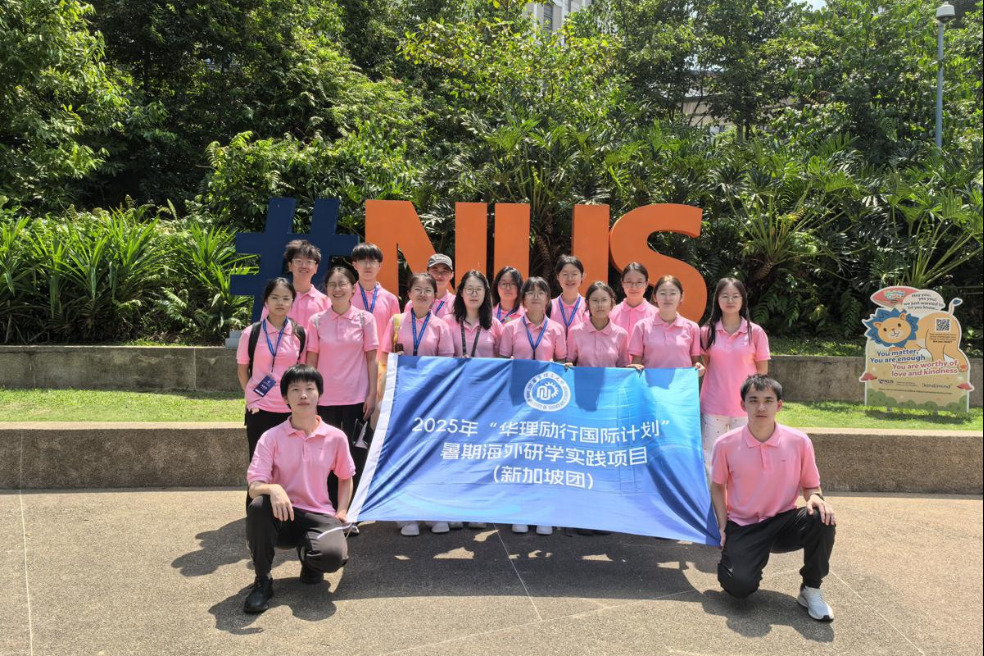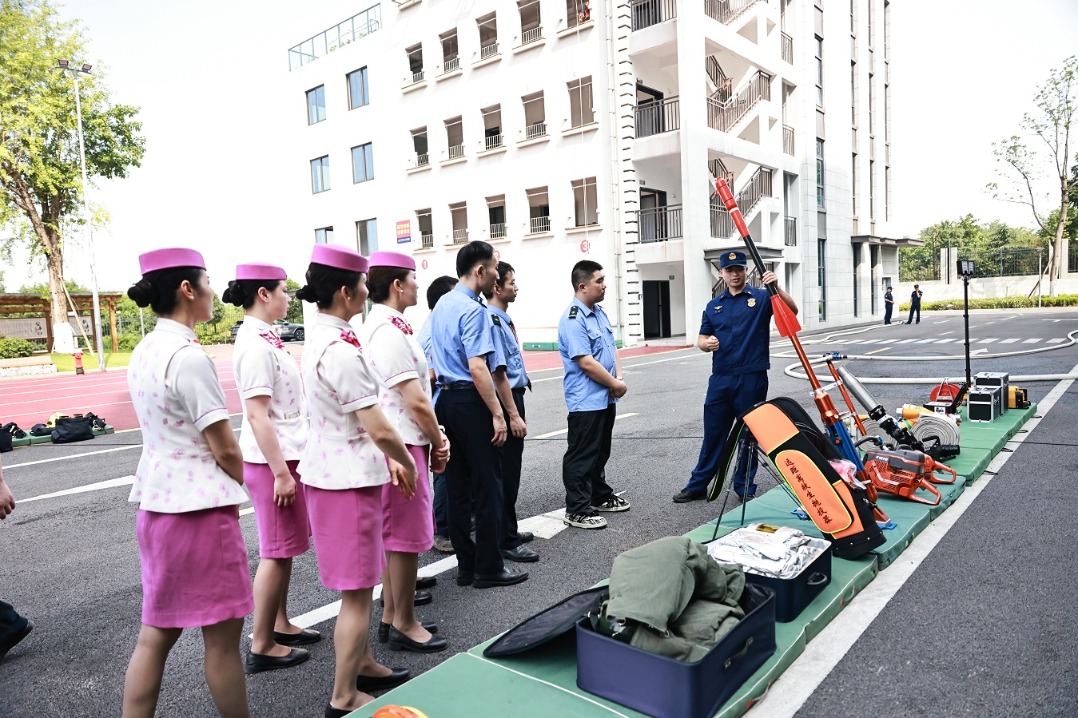Xi stresses full, rigorous Party self-governance through improving conduct

BEIJING -- On the afternoon of June 30, the Political Bureau of the Communist Party of China Central Committee held its 21st group study session.
The topic was on improving the long-term mechanism for implementing the central Party leadership's eight-point decision on improving conduct and addressing the "four forms of malfeasances" (formalism, bureaucracy, hedonism, and extravagance).
On behalf of the CPC Central Committee, Xi Jinping, general secretary of the CPC Central Committee, extended festive greetings to all Party members across the country on the founding anniversary of the Party on July 1.
While presiding over the study session, he emphasized that self-reform is the Party's second answer to breaking the historical cycle of rise and fall, and that advancing full and rigorous Party self-governance by improving conduct represents a key experience in the Party's self-reform in the new era. To advance the Party's self-reform, efforts must be made to raise awareness of the Party's self-reform, strengthen Party consciousness, regulate the exercise of power, enforce strict oversight and discipline, and fulfill responsibilities for Party self-governance.
Zhao Baoguo, head of the office for supervision of Party and government conduct under the CPC Central Commission for Discipline Inspection and the National Commission of Supervision, gave a lecture on this topic and put forward suggestions in this regard. Members of the Political Bureau of the CPC Central Committee listened attentively to the presentation and engaged in discussions.
After listening to the lecture and discussions, Xi delivered an important speech. He pointed out that the eight-point decision was a concrete initiative by the CPC Central Committee to enhance public trust in the Party, and a landmark measure for strengthening Party self-governance in the new era.
Since the 18th CPC National Congress, the CPC Central Committee has advanced Party self-governance through the implementation of the eight-point decision, insisting on making strict rules and establishing tough constraints. The Party has emphasized the exemplary role of senior officials, with the Political Bureau of the CPC Central Committee taking the lead, and has adopted a problem-oriented approach, focusing on rectifying the "four forms of malfeasances" through education campaigns and a series of rectification actions. The CPC Central Committee has insisted on persistent, meticulous, and sustained efforts in this regard while making progress step by step at every critical juncture. Attaching the same importance to the role of Party consciousness, conduct, and discipline, the Party has made concerted efforts to improve conduct, strengthen discipline, and combat corruption.
As a result, some malfeasances once thought impossible to be addressed have been curtailed, some persistent problems have been addressed, and numerous pressing issues of public concern have been resolved. The Party and government conduct has been significantly improved, leading to an overall improvement of Party self-governance, and pooling a powerful positive force for advancing the cause of the Party and the country.
Xi stressed that the Party's task of advancing Chinese modernization is arduous, and that the governance environment the Party faces is highly complex. This makes it all the more imperative for the Party to stay on high alert and keep advancing self-reform. Party organizations and members, no matter at what level and in what position, should be aware of their responsibility for self-reform. Leading officials, especially high-ranking ones, must take the lead in this regard.
Xi noted that to advance self-reform, it is imperative to have firm convictions and strong Party consciousness. To enhance Party consciousness, it is a must to maintain firm ideals and convictions, remain loyal to the Party, foster a sentiment for the well-being of the people, uphold moral integrity, and be honest and clean. It is essential for Party members to arm themselves with theories and uphold the ideals and convictions of communists. It is imperative to take an active part in the endeavor to advance Chinese modernization, make lives more rewarding through hard work, and enhance moral standards through serving the people. It is essential to actively take part in intra-Party political activities, dare to engage in self-reflection, and consciously accept the education of Party organizations and supervision from all aspects. In selecting and appointing officials, it is a must to strictly assess candidates' Party consciousness and evaluate their moral character, vision, loyalty and integrity.
Xi stressed that combating corruption requires that the exercise of power be well-regulated. It is essential to improve institutional mechanisms that integrate the delegation, exercise, and check of power in a unified manner, making them clear, transparent, and traceable. Efforts should focus on identifying loopholes in the running of power and addressing institutional deficiencies. It is imperative to strictly abide by rules and regulations, fully implement democratic centralism and supervise the exercise of power throughout the entire process. Party members and officials must always bear in mind that the power comes from the people, and hold the people, the Party, and the law and discipline in reverence.
He pointed out that strict supervision and discipline enforcement are a powerful weapon for the Party's self-reform; misconduct and violations of laws and regulations must be dealt with resolutely. It is necessary to integrate intra-Party supervision with public oversight, valuing the "early warning" function of mass oversight and media supervision to promote synergy among all forms of supervision. The role of Party organizations in conducting routine oversight must be strengthened, with greater emphasis on improving its reach and effectiveness. Concerted efforts must be made to investigate and punish those involved in both misconduct and corruption, turning rigorous requirements for Party conduct and discipline into firm measures to give teeth to the rules, thereby sending an unequivocal message to the whole Party that strictness will prevail without compromise, consequently creating a strong deterrent effect.
Xi stressed the strict implementation of every single duty in the complete chain of responsibilities for Party self-governance, which includes the principal responsibility, the supervisory responsibility, the responsibility of those in leading positions, and "one leadership position with dual responsibilities" of managing routine work and improving Party conduct. As the "key few," leading officials at all levels are urged to resolutely shoulder responsibilities for Party self-governance, to be strict with themselves, earnestly fulfill their responsibilities, and conduct rigorous management of their subordinates, cascading pressure down through the ranks, and thereby fostering an atmosphere of strictness and a culture of uprightness. He also urged members of the Political Bureau of the CPC Central Committee to set an example for the whole Party in implementing responsibilities for Party self-governance.
Xi pointed out that in conducting the education campaign for implementing the central Party leadership's eight-point decision on improving conduct, Party organizations at all levels must earnestly fulfill their political responsibilities, face up to problems, urge proper rectifications of misconduct, curb improper practices, and improve regular and long-lasting mechanisms for improving conduct, so as to make sure that the campaign will be carried out smoothly and effectively.
- ECUST students embark on student exchange program in Singapore
- Rare Oriental darter spotted in Hainan for first time
- Xizang capital launches battery-swap new energy taxis
- Regatta draws nearly 400 rowers to Suzhou Creek in Shanghai
- Qilian Mountains glisten with summer snow
- Former deputy chief of China's State Tobacco Monopoly Administration expelled from CPC





































